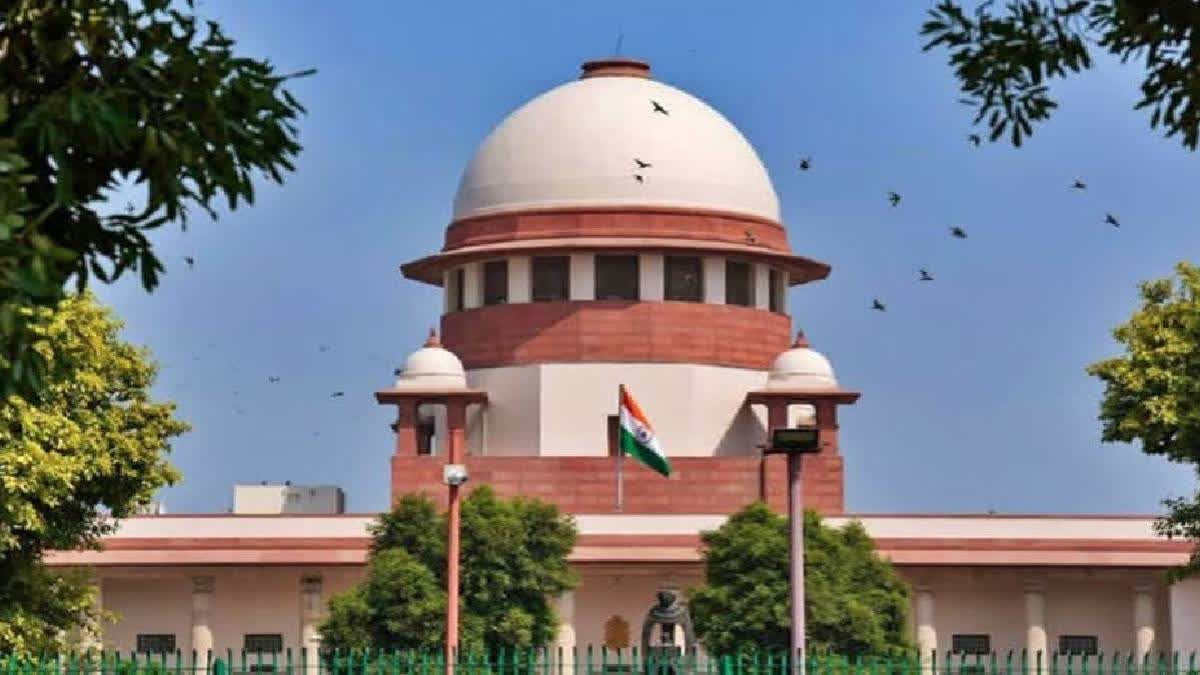New Delhi: Solicitor General Tushar Mehta on Wednesday made a statement before the Supreme Court that Centre has no intention to touch the special provisions applicable to the northeastern states while opposing a discussion on the impact of abrogation of Article370, which bestowed special status on the erstwhile state of Jammu and Kashmir.
The apex court told Congress MP and advocate Manish Tewari, representing an intervenor, “You have nothing to say on Article 370. So why should we hear you?” A five-judge constitution bench headed by Chief Justice of India D Y Chandrachud and comprising justices S K Kaul, Sanjiv Khanna, B R Gavai, and Surya Kant, is hearing a batch of petitions challenging the abrogation of Article 370.
Tewari contended that even a slight apprehension in the periphery of India can have serious implications and the court is currently dealing with one such situation in Manipur. Tewari said Article 370, which applies to J&K, Art 371, the six sub-parts which apply to the northeast and the sixth schedule of the Constitution which applies to Assam, Tripura, and Meghalaya, becomes relevant in this matter. Tewari contended that the interpretation of Article 370 can possibly impact other provisions.
At this juncture, Mehta said “I have instructions to say this. We have to be very responsible….we must understand the temporary provision which is Article 370 and special provisions with regard to other states, including the northeast (NE). The central government has no intention to touch any part which gives special provision to the northeast and other regions. This submission will have very potential mischief. Therefore, I am interrupting and making it clear. Let us confine to a temporary provision for J&K, rest are special provisions, not temporary provisions”. Opposing Tewari’s submissions, Mehta stressed that there is no apprehension and let us not try to create any apprehension.
The Chief Justice said, “Why should we deal with it in anticipation or apprehension? We are dealing with a specific provision which is Article 370….we don’t have to expand this ambit on the impact of interpretation will have on other provisions of the Constitution”. Justice Kaul said Article 370 is stated to be a temporary provision and of course, counsel have argued that it is not temporary and Article 371 should not be brought into these proceedings. The Chief Justice said the Centre has informed the court that it has no such intent, why should we apprehend that it is what the government is wanting to do in other parts of the country and “I think we should not enter that terrain at all….”.
The bench stressed that let us not move the focus on the northeast now, the apprehension is allayed by the statement made on behalf of the government. The bench noted that petitioners’ have already argued that if you permit abrogation of a state and its constitution into a Union Territory then why would it only be confined to only J&K. Justice Khanna pointed at Tewari’s written submissions that it is mostly confined to the northeast and we are only with Article 370.
Justice Gavai pointed at special provisions with respect to the state of Maharashtra and Gujarat and emphasized that the court is only interpreting 370 right now. The Chief Justice told Tewari, “You have nothing to say on Article 370. So why should we hear you….you have not formulated anything in your submission on Article 370 ?”
The top court noted Mehta’s submissions that the Centre has absolutely no intent to touch any of the special provisions applicable to the northeast or any other part of India. “Reference to the constitution bench is confined to Article 370…..there is no commonality of interest between the issues which sought to be addressed by the intervenor and the issues raised in the reference to this constitution bench. In any event, a statement which has been made on behalf of the Union government would allay any apprehension in that regard. We, therefore, close the IA (intervention application)…stand disposed of”, said the top court.
During the hearing, the apex court’s attention was also drawn to then Jammu and Kashmir governor Satyapal Malik’s statement during a video interview that “he was not consulted before decision was taken”.
Senior Advocate Nithya Ramakrishnan, representing one of the petitioners, contended that here is a Governor who gives a video interview and added that she is aware that a newspaper report is not evidence on itself but this is a video interview given by Malik.
Ramakrishnan, reading Malik’s interview, said, “He says he did not even know why the constitutional order was being issued and was only called to sign a letter….and they call this people's will?” The bench said this is a post facto statement. Ramakrishnan said yes, consider it only at that level.
The petitioners have argued that concurrence of state assembly, which reflects will of the people, was mandatory before such sweeping changes altering the history and geography of the erstwhile state were made.
Also read: Hate speech case: SC stays trial court's order directing Azam Khan to give voice sample



